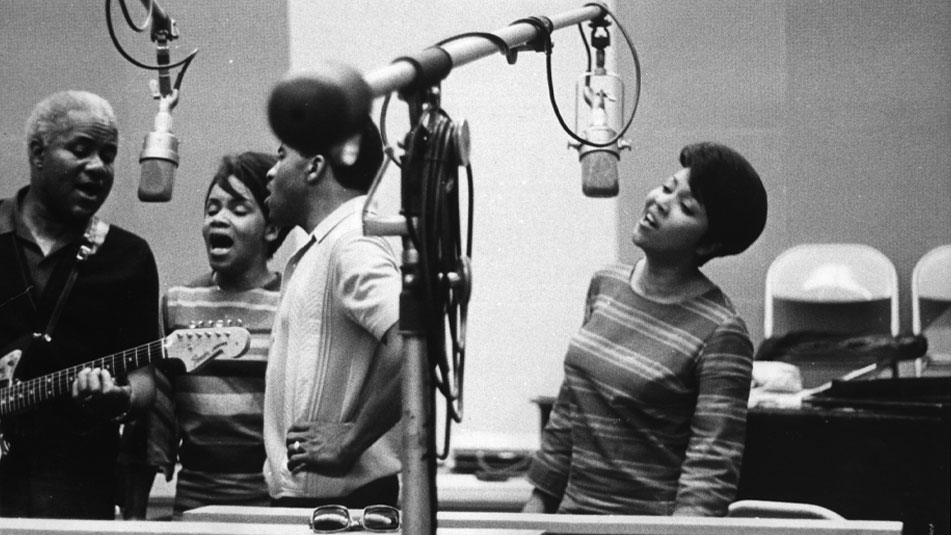Mavis Staples turned 85 on July 10, 2024. It has been a remarkable journey since the day she was born in the South Side of Chicago back in 1939. It is not only a musical journey but also one that provided a voice for the Civil Rights Movement, a voice that still speaks in support of the cause.
Her father was Roebuck “Pops” Staples who got his name because his parents had great respect for Sears, Roebuck, & Co. He and his wife Oceola moved from Mississippi to Chicago in 1936, going from one hotbed of blues and gospel music to another. Mavis and her siblings – Cleo, Pervis, and Yvonne all learned to sing at an early age. Pops, Mavis, Cleo and Percy formed the gospel act bearing their name – the Staple Singers – in the late 1940s. Yvonne replaced Pervis when he was drafted into the Army.
The Staple Singers signed their first professional contract in 1952 and in 1956 had their first hit record with “Uncloudy Day.” Other hits would include “Respect Yourself,” “Freedom Highway,” and “Why? (Am I Treated So Bad).” The latter song is said to have been a favorite of Dr. Martin Luther King. These songs match Sam Cooke’s “A Change Is Gonna Come” in their importance to the Civil Rights Movement and the message they convey.
While continuing to record and perform with her family, Mavis released a solo single in 1968 and her first solo album in 1969. The single was a cover of “Crying In The Chapel,” a much underappreciated rendition of the song. Her album – Mavis Staples – was released on the Volt label in 1969. She has recorded 13 solo studio albums, three live albums, and numerous compilation albums, singles, and EPs. She recorded her latest album – Carry Me Home – in 2022 with Levon Helm. She may not be done yet.
Although her commitment to recording with her family likely kept her from reaching comparable solo success, Mavis still has had a remarkable music career. She has worked and recorded with a Who’s Who of artists, including Aretha Franklin, Ray Charles, Marty Stuart, Kenny Loggins, Prince, John Mayall, Sam Cooke, Curtis Mayfield, Mahalia Jackson – the list goes on.
And then there is Bob Dylan. Growing up in the Iron Range of Minnesota, the young Robert Zimmerman would tune in to the high-wattage radio stations from Nashville, Memphis, Shreveport and Atlanta that blanketed the country each night. The music was far from the jukebox mainstream. “At midnight, the gospel stuff would start,” Dylan later told a documentary filmmaker. “But the Staple Singers came on . . . and they were so different.”
According to Mavis, Dylan developed what she called a case of puppy love. The singer-songwriter first proposed to her after a kiss at the 1963 Newport Folk Festival. She refused him.
“I was the one that dodged a bullet,” Mavis told the New Yorker. Continuing, “I wouldn’t have been able to keep up with him.” However, she added, “If I stayed with him in his life, I don’t think he would have turned to drugs like he did.”
Many years later, in 2016, Mavis and her band toured as an opening act for Dylan. He knocked on her door, something he rarely does with an opening act. After knocking he walked in and Mavis told him she was so glad to see him. “I been wanting to see you for so long,” she told him.
“You should have married me,” Dylan said. “You would’ve seen me every day.”
They have remained friends.
You cannot talk about Mavis Staples without talking about her involvement in the Civil Rights Movement. It was an involvement rooted in personal experience. Traveling through the South in the 1960s, a gas station attendant hurled racial epithets at Mavis. Pops Staples took exception. The attendant attacked Pops but the family was arrested after they fled the station.
It was Pops Staples who set Mavis and the Staple Singers on the quest for Civil Rights. It began after a meeting with Dr. King in 1963. Pops was inspired by Dr. King’s speeches and believed in his message. The inspiration resulted in songs like “Freedom Highway,” “Respect Yourself,” and “Why (Am I Treated So Bad).” Pops would say of King, “I like this man’s message. I think if he could preach it, we can sing it.”

She recently spoke to the University of Chicago News about Pops hope that the Staple Singers could change the world with their music. “We can’t save it, but we helped,” Mavis said. “I feel like I know that our music has done some good. It has changed some things.”
Some might say that is a cheerful and optimistic assessment. Perhaps it is. But then, Mavis has always displayed a cheerful and optimistic persona. Her mother nicknamed her “Bubbles” because she was always so overwhelmingly positive. She considers it to be her middle name. When traveling by plane she takes bottles of bubbles to entertain any children she encounters.
Her optimism remains even today. “I have had a lot of hard times, good times, but I make it through,” she says. “Things don’t seem as hard as they used to.” Nonetheless, she is concerned over the end of Roe v. Wade, the string of women sucker-punched in Manhattan this past Spring, and the accusation of voter fraud by a Black mother and daughter.
So with those weighty matters on her mind, why does Mavis have such optimism?
“You have to stay hopeful and have faith that things are going to get better,” she says.
Mavis Staples was among the ten Solo Living Artists inducted into the Folk Americana Roots Hall of Fame over the weekend of April 19 and 20, 2024 at the Boch Center in Boston.
Next up – Bob Dylan

